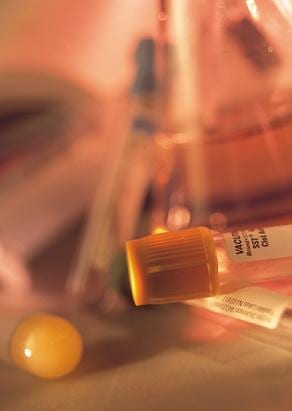Doctors use in vitro fertilization, or IVF, to help women become pregnant when they are unsuccessful using the old-fashioned methods. IVF is responsible for the births of hundreds of thousands of babies each year. Women over 40 are not as fertile as younger women, so they may require the use of assisted reproductive technologies like IVF to become pregnant.
Significance
At birth, a girl baby has about 1 million eggs stored in her ovaries. By the time you reach your 40s, however, that number is down to fewer than 25,000. Furthermore, the eggs that you do have are older, which can lead to problems getting pregnant or genetic problems with the baby. Through IVF, you can be sure that the eggs are fertilized, which increases your chances of a successful pregnancy.
Features
In IVF, doctors remove some eggs from your ovaries and use your partner’s sperm to fertilize the eggs outside the body in a petri dish. In some cases, your doctor may use donated eggs or sperm. Once these eggs are fertilized, the doctor places them inside your body in the hopes that it will attach to your uterus and become a baby. However, there is no guarantee that this will happen. It could take several attempts of IVF to become successful.
Costs
IVF is an expensive process. Just one attempt, or “round,” can cost almost $10,000, and it may not be successful. Your IVF lab may offer discounts when you purchase several rounds at once, costing as much as $30,000. You will not receive a refund of the extra money if the first attempt is successful, but purchasing several rounds may offer you a refund if all attempts are unsuccessful. Other potential costs include egg storage, embryo storage and sperm freezing. Your health insurance plan may cover some or all of the costs of IVF.
Considerations
When women are older than 40, there is less of a chance that the implanted embryo will become a fetus, so doctors will typically transfer several embryos into your body at once, which increases the chance for twins or multiple births. The Boca Fertility website states that there is only a 15 percent chance of twins for women over 40, but this is a higher chance than you would normally have.
Warning
Due to complications with egg quality in older women, there is a high chance of miscarriage. The Boca Fertility website states that there is a significant drop in the number of live births in women over 43, with no women giving birth over 45 using her own eggs. One potential solution to this is to use donor eggs for your pregnancy.
Photo Credit
- lab image by Alhazm Salemi from Fotolia.com





